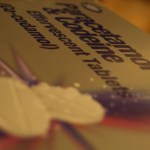A NEW SPECIES OF TROUBLE
Global collaboration on biosecurity and pandemic preparedness is vital – our future depends on it

The democratisation of science and advances in computation mean anyone can potentially create or modify viruses or bacteria. This raises the possibility of rogue or malicious actors creating biological weapons or unintentionally releasing dangerous pathogens.
In 2008, the Global Catastrophic Risk Conference held at Oxford University issued a warning. Experts estimated a 2% medium risk that a human-made, or “engineered”, pandemic could lead to human extinction by the end of the century.
Though 2% might seem small, in the context of humanity’s existence, it is a probability we should take seriously. Indeed, the risk landscape today is more concerning than it was in the 15 years since the Catastrophic Risk Conference.
The frontiers of biotechnology and computer science have progressed, creating novel markets and opportunities. These same advances, some of which will be hugely beneficial, have simultaneously ushered in a new species of trouble.
Cutting-edge tools like CRISPR, a technology that allows us to “cut and paste” segments of DNA, are revolutionising medicine and agriculture. mRNA technologies, such as those developed for Covid-19, allow for faster vaccine development, offering the potential for a rapid response to the emergence of new diseases.
The arrival of generative artificial intelligence (AI) models will lead to a merger of biotechnology and computer science – an AI-Bio convergence. In more simple terms, this means sophisticated algorithms will propel biotech research to reach their objectives faster and more precisely, leading in turn to more rapid diagnosis of diseases, quicker development of vaccines, and new and better treatments for a range of conditions.
These wonders of science serve us at our behest and those that wield these tools determine their use. In 2021, the Financial Times reported on the so-called “garage scientists”, members of the public who, thanks to the falling costs and increased availability of biotechnology tools, can manipulate DNA in the comfort of their homes.
The democratisation of science, coupled with advances in computation, mean that anyone can potentially create or modify viruses or bacteria. This raises the alarming possibility of rogue or malicious actors creating biological weapons or unintentionally releasing dangerous pathogens. A new species of trouble.
Current measures can go further
In a few days, world leaders will discuss a global Pandemic Prevention, Preparedness and Response at the UN General Assembly. While this compelling initiative aims largely to prepare us for naturally occurring diseases, such as a new strain of flu, it should go further in addressing the spectrum of threats that include human-made pathogens, which could be intentionally or accidentally released.
Our new report, A New Species of Trouble, offers guidance. Focused on Africa, the report’s recommendations are globally applicable. It suggests three primary areas for improvement:
- Revising outbreak protocols: We need to create new rules and procedures for joint identification of the origins of outbreaks involving public health and security institutions. These rules should be tailored to the fast-evolving threats posed by modern biotechnology and plan for managing the consequences;
- Severity assessment frameworks: We need a systematic way to evaluate the seriousness of an outbreak from both a public health and security perspective. This will help in mobilising the right amount of political will and resources to resolve the issues as fast and effectively as possible; and
- Resource deployment: We need to be ready to allocate human, financial and technological resources efficiently to combat outbreaks, whether they are naturally occurring or human-made. We must deploy new technologies to shorten time frames for the development of countermeasures like diagnostic tests, vaccines and therapeutics.
Key to global biosecurity
Efforts are under way to address these new species of risks. The African Centres for Disease Control is partnering with the G7-led Global Partnership in their Signature to Mitigate Biological Threats in Africa to improve biosecurity and biosafety in Africa.
Initiatives by groups such as the Coalition for Epidemic Preparedness Initiative (CEPI), the Washington DC-based Council of Strategic Risks and the Nuclear Threat Initiative are contributing to major interventions under way.
These efforts, however, are simply not enough to address the magnitude of the threat. We need a coordinated, global strategy that brings together governments, scientists and industry leaders from around the world to address a problem that is common to us all.
Imperative for action
We cannot push discussions about biosecurity to the back burner. Especially after grappling with a global pandemic, we cannot afford to be complacent. Powerful technologies already exist; what is missing is a coordinated strategy to safeguard humanity from their potentially catastrophic misuse.
By fostering a culture of international collaboration and thorough policy scrutiny, we can encourage scientific innovation without compromising global safety.
In doing so, we’re not just advancing science; we’re preserving our future. DM
Peter Babigumira Ahabwe is the border health technical lead at the Global Health Security Department of the Infectious Diseases Institute, College of Health Sciences, Makerere University, Uganda; Wilmot James is a Professor of Practice at Brown University’s School for Public Health and senior adviser to the Pandemic Centre, Providence, Rhode Island.

















 Become an Insider
Become an Insider
Comments - Please login in order to comment.